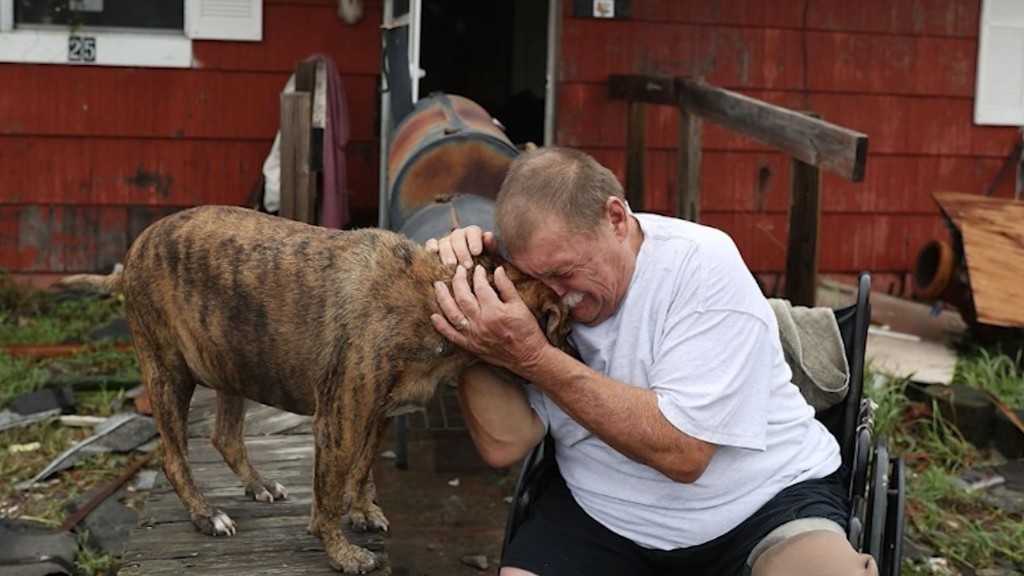
The only thing known for certain about the cost of Hurricane Harvey is that it's one of the most expensive natural disasters in the nation's history. It might even be the most expensive.
Two estimates on Wednesday put total losses -- including property damage, lost wages and disrupted business -- at as much as $75 billion.
"It's certainly going to be in the top five," said Mark Zandi, chief economist of Moody's Analytics.
Moody's estimates that property losses will total between $45 billion to $65 billion, while economic losses will add $6 billion to $10 billion. A $75 billion price tag would make it the second most costly natural disaster. Superstorm Sandy in 2012, which currently ranks second, caused $73 billion in damage when adjusted into today's dollars.
Beyond the property losses, business in one of the nation's largest cities has come to a virtual standstill.
A big chunk of the nation's oil refining capacity has been taken offline, and the port of Houston and its airports have been shut. Some of the lost business activity will be made up once they reopen, but some will be lost permanently. And those shutdowns are affecting the nation's economy, since gas prices are rising and air travel has been disrupted.
The most recent preliminary forecast by Enki Research puts losses in a similar range -- between $48 billion to as much as $75 billion. That's up from Tuesday's estimate of $42 billion. But the firm cautions that even its latest estimate is likely to change.
"The normal models just don't work on a storm like Harvey," said Chuck Watson, director of research and development for the firm. He said debris floating down a street can clog a drain and cause water to back up and damage numerous homes that otherwise would have escaped damage.
"Flooding is so horrifically complex to forecast," he said.
Related: Flood insurance - Harvey tests a broken system
One estimate from weather forecaster AccuWeather says the full extent of the damage from Harvey could total $160 billion, which would top the $118 billion estimated cost of Hurricane Katrina.
"The disaster is just beginning in certain areas," said AccuWeather founder and president Joel Myers, whose company provides cost estimates for major storms. "Parts of Houston, the United States' fourth largest city, will be uninhabitable for weeks and possibly months due to water damage, mold, disease-ridden water and all that will follow."
Related: Corporate America's Harvey relief - $55 million and counting
Myers said AccuWeather's forecast could rise.
"If a building disappears, even if insurance pays for it to be rebuilt, it has to come out of someone's pocket," said Myers. "And a number of businesses are never going to reopen. Some might come back but employees might not get paychecks for weeks or months. And the infrastructure has been hurt tremendously."
Much of the destruction will not be covered by insurance since traditional homeowners' policies do not provide coverage for flood damage. Homeowners and businesses need federal flood insurance to protect themselves from the massive flood damage associated with this storm. And only about 15% of homes in Harris County, which includes Houston, have federal flood insurance.
Billionaire investor Warren Buffett said in an interview with CNBC that he expects there will be "a high proportion of uninsured losses to insured losses, compared to most events."
"It has a real effect. It destroys wealth. If there's $150 billion or something of uninsured losses, that's real wealth," Buffett said.
The tropical storm made landfall again Wednesday in east Texas and Louisiana, causing even more widespread flooding.
And while the water has started to recede in some neighborhoods of Houston, AccuWeather said there could be additional flooding in Texas as rivers and bayous continue to rise.


